Valheim is better because it rejects boring survival systems
RIP starvation and repair bills.
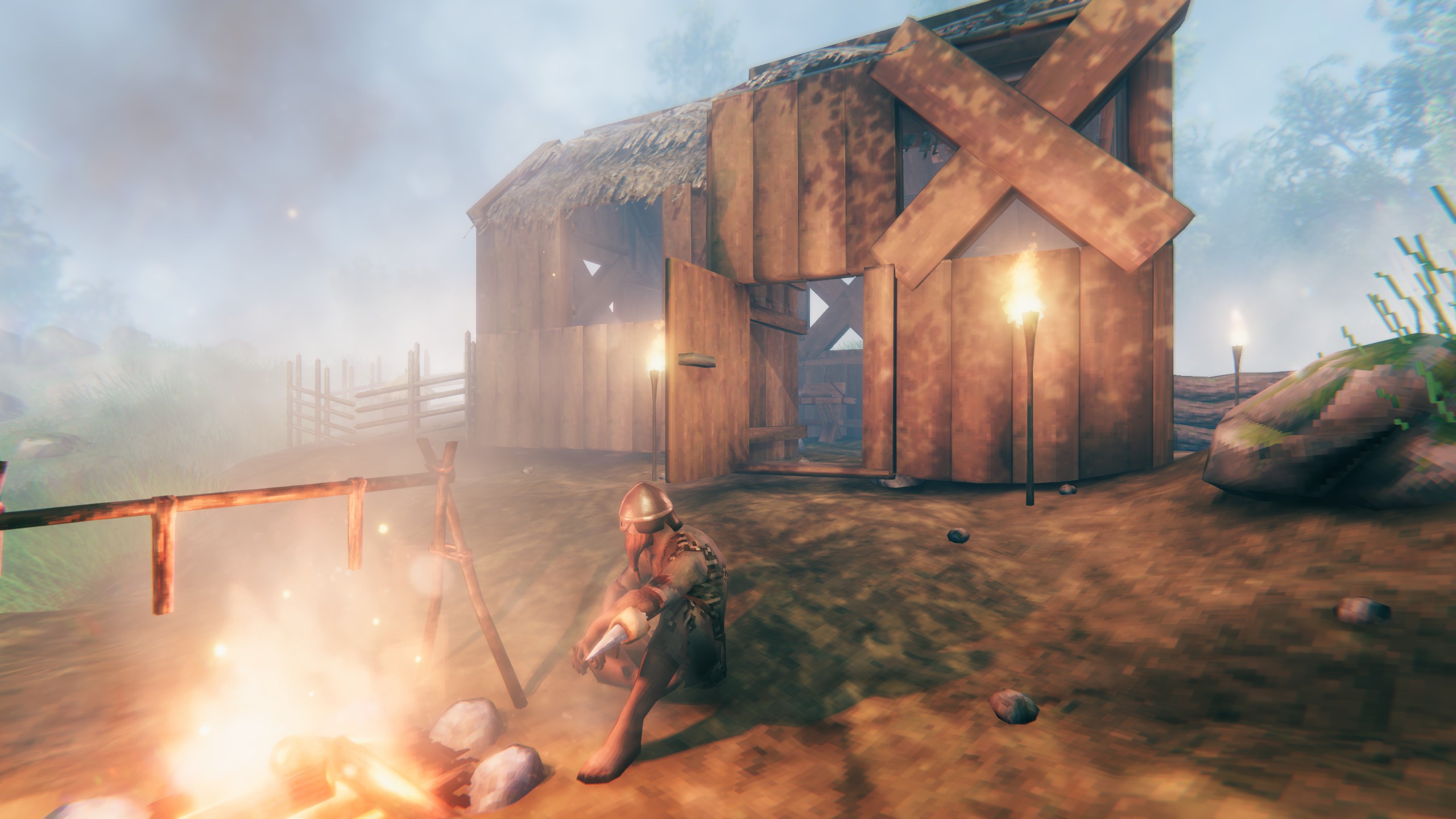
Half of PC Gamer is obsessed with Valheim, the Viking-themed survival game that punched its way into the Steam top 10 and sold a million copies in a week, so naturally I don't trust it. How has this seemingly extremely conventional survival game ensorcelled so many people? I stuck on my big beard and picked up my axe, determined to find out. I return begrudgingly impressed.
The first surprise is how lovely it looks. The distinct lo-fi aesthetic conjures up memories of early 3D games, but elevated by modern lighting and other bells and whistles. Screenshots and gifs don't really do it justice, and what just seems like an old school throwback when static becomes something striking and novel in motion. It's easy to see why it's left people enamoured so quickly. But it's not just its good looks that make it stand out—it's also extremely easy going.
As Chris noted when he explained why Valheim is making him love survival games again, it's a surprisingly forgiving game, and it's better off for it. Sure, you can find yourself out of your depth, overextended and, finally, dead—this is still a survival game—but these moments don't feel like punishments. In the beginning, there are hardly any threats at all, and when you do venture into more dangerous areas, you're given a clear warning.
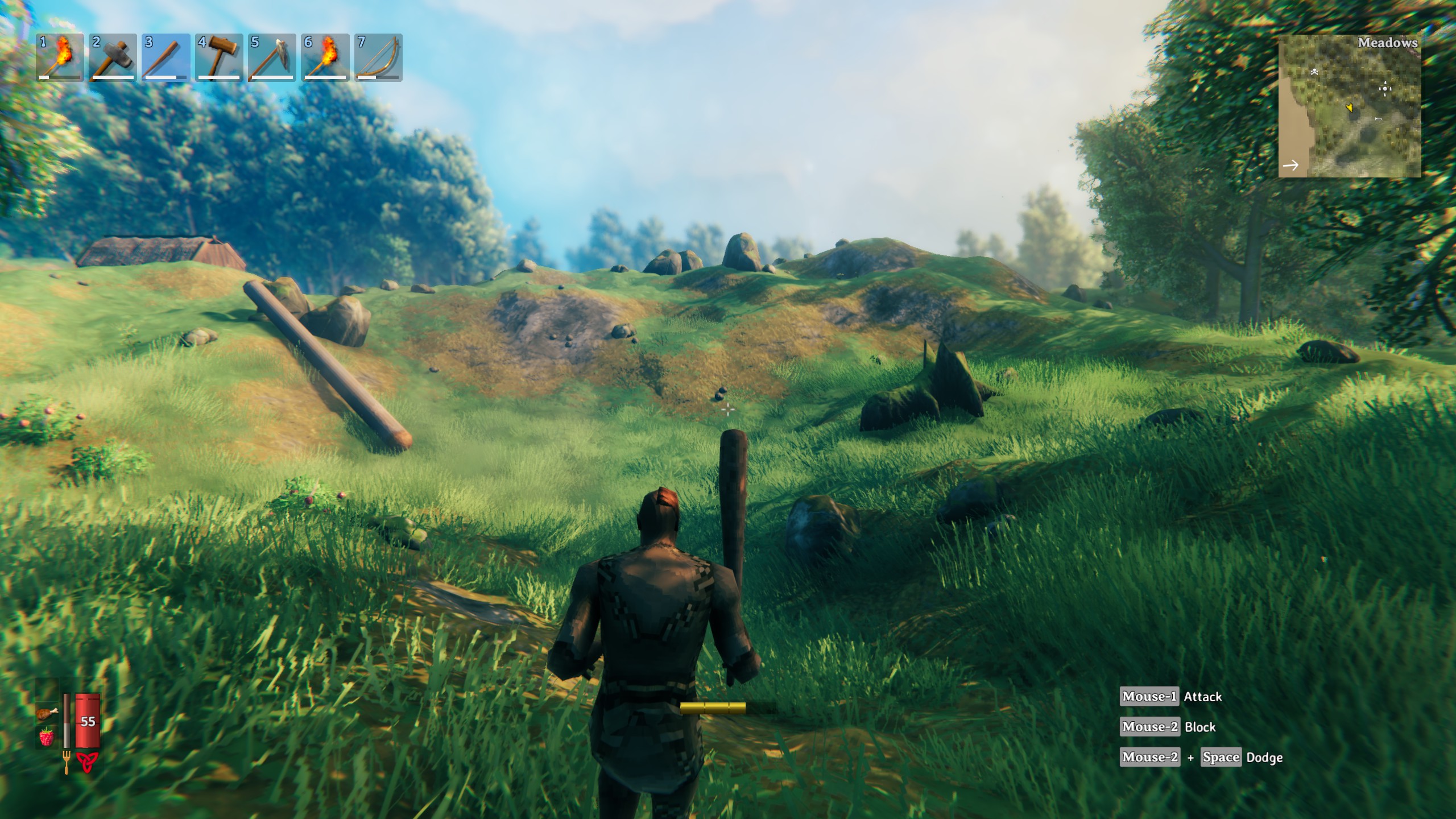
Death isn't the only thing that isn't a nuisance in Valheim. There's no thirst meter, and while there is a hunger system, it's one that exclusively provides benefits. No longer will you have to frantically find food because, mid-expedition, you start to die of starvation. Instead, you've got room in your belly for three food items, the combination of which will determine your health and regeneration. There's strategy and experimentation and, crucially, nothing being thrust upon you. If you want to spend a few hours just building, you don't have to engage with the system at all.
So much time is wasted in survival games just going through daily chores, eating, drinking, fixing or replacing tools—Valheim gets rid of that last hassle too. Bring any damaged item to the workbench and you'll be able to make it as good as new again, at no cost, so you won't have to spend ages scurrying around looking for more resources just to make something you've already crafted a dozen times. When you craft, you're always making something new, or contributing to a new building project.
In cutting and reducing so much busywork, Valheim's one of the most welcoming survival games around, and the lowering of these barriers is one of the reasons it's currently enjoying huge player numbers—despite the fact that you can hardly move without bumping into another crafting or survival romp. And it loses nothing of value. All the things these systems were trying to achieve, Valheim still manages, without using the stick. All the adventures, risky expeditions and joyful moments where you finally crush another obstacle have been preserved. There's tension and challenge and you can even get squashed by a falling tree—you'll have all the danger and anecdotes you need. But you don't need to go through hours of drudgery first.
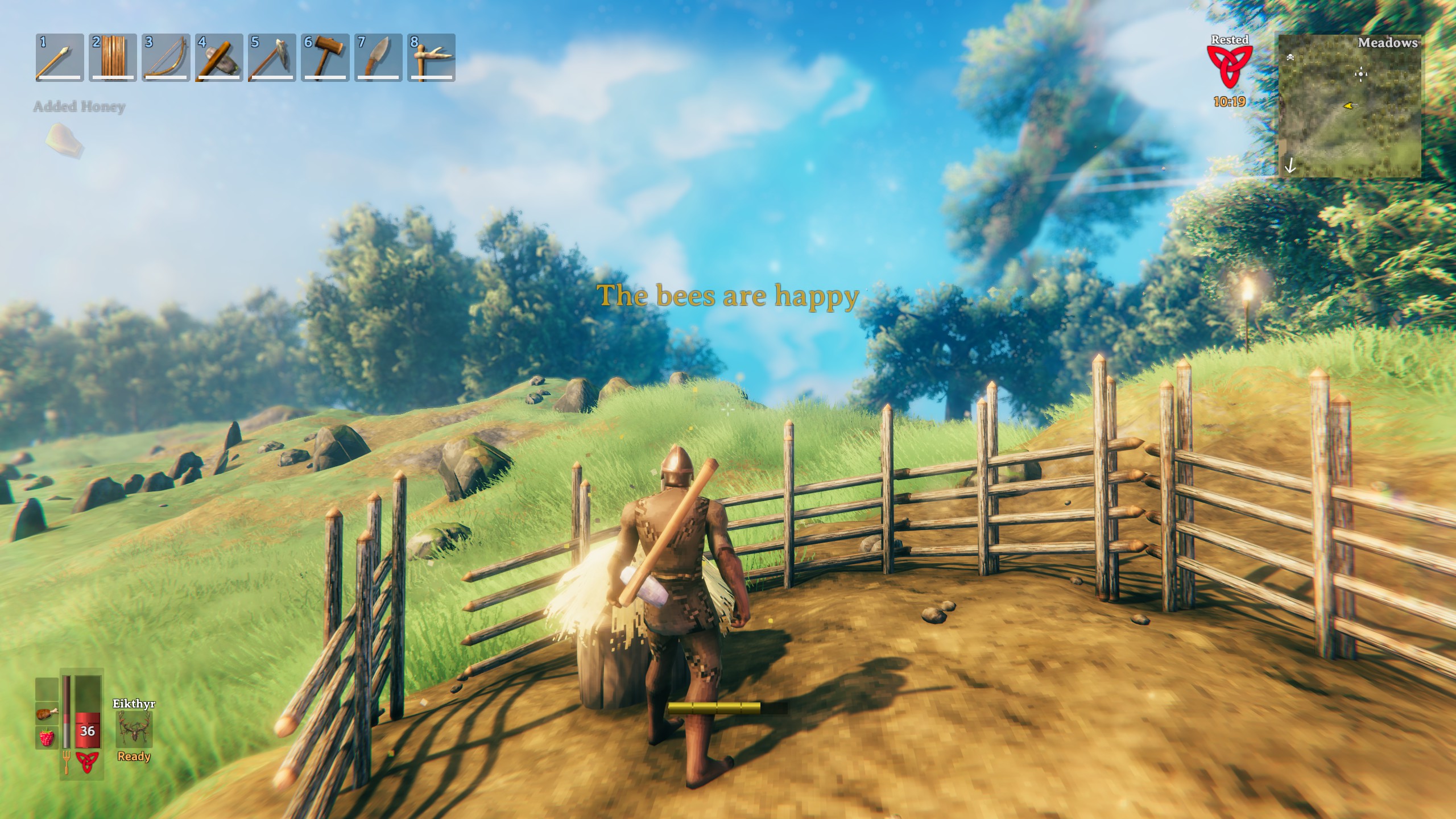
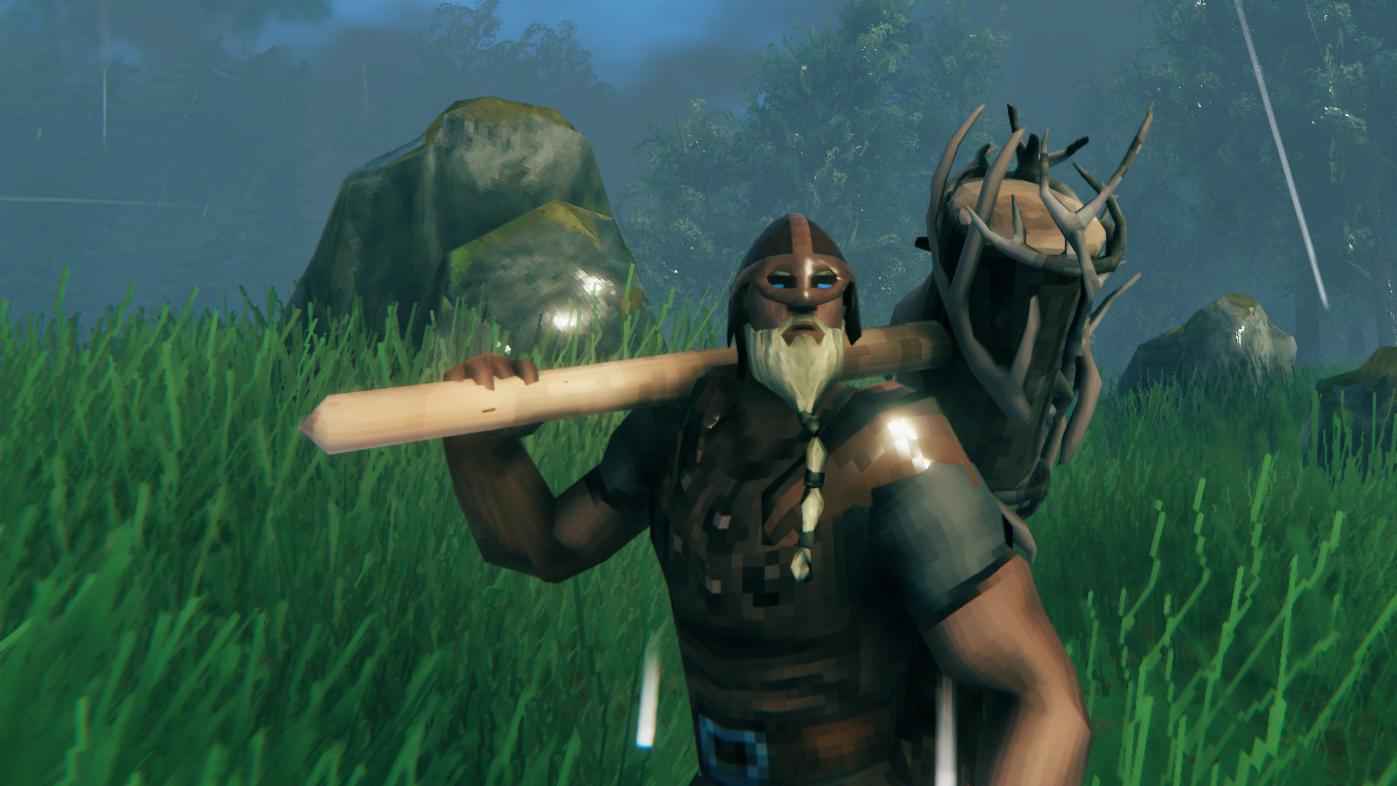
Valheim boss: Summon and defeat them all
Valheim workbench: How to build and upgrade it
Valheim dedicated server: How to get one working
Valheim copper: How to get it
Valheim map: The best world seeds
Valheim seeds: How to plant them
Valheim iron: How to get it
Valheim Elder: Summon and beat the second boss
Valheim boar: How to tame one
Valheim armor: The best sets
Valheim commands: Handy cheat codes
Unlike, say, Dark Souls, you don't see people holding up any survival games as examples of things where the difficulty teaches you to get good. We don't need a game to teach us to remember to eat when we're hungry. Nobody believes that dying from starvation repeatedly while they try to build a really cool tower makes the construction project more meaningful or memorable. By appealing to masochism, survival games seem to miss all the other things that attract people to the genre.
The biggest gaming news, reviews and hardware deals
Keep up to date with the most important stories and the best deals, as picked by the PC Gamer team.
Survival games have just become too bogged down by their desire to replicate the survival experience instead of trying to capture what makes it an attractive videogame subject. And even if you are looking for a hardcore survival sim, the extremely basic ways most of them simulate your health means that you're not really getting something remotely realistic. Scum, with its elaborate injury and metabolism system, which required you to take bathroom breaks, simulated fat and muscle, and could lead to the loss of body parts, is a rare exception. It's very much not for me, but it takes these normally dull systems in a fascinating direction.
I don't want to imply that Valheim's current popularity is exclusively down to the rejection of the genre's most boring bits—it's also uncommonly polished for an Early Access game, boasts a simple but reasonably flexible building system, and is set in an inviting procedural world that beckons you to explore it. But it is extremely familiar, and while I work away on my base and hunt down mythological monsters, I often find myself thinking about other survival games, and how I'd probably rather be playing them, if only they could embrace Valheim's laid-back philosophy.
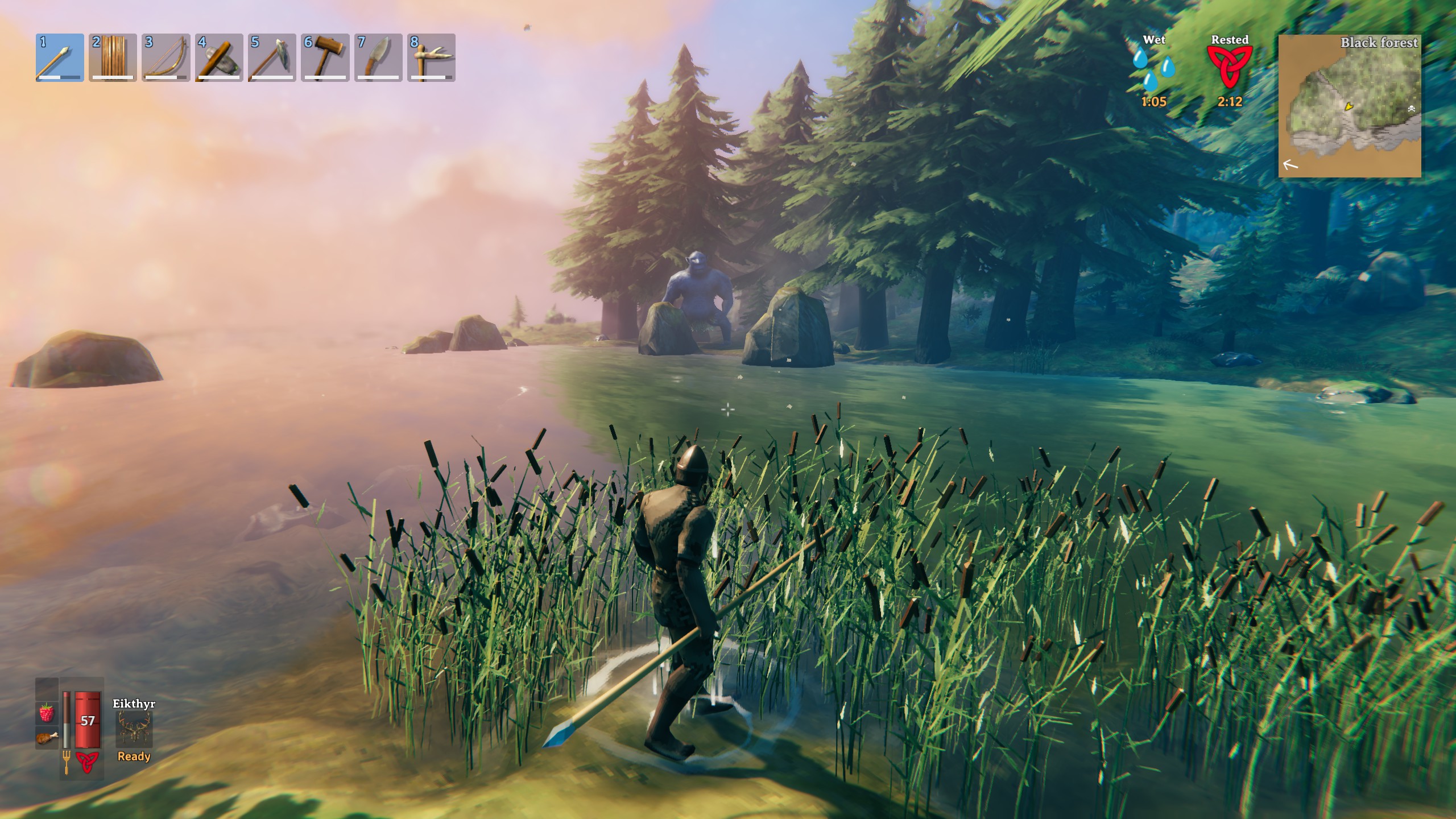
Grounded is another relaxing survival game, and one that's quite a bit more novel than Valheim, but it maintains a pretty typical thirst and hunger system. It's a constant source of frustration in a game I otherwise adore. Whenever I'm getting stuck into an exciting project or bounding off into a probably fatal adventure in the spider-infested hedgerow, in the back of my mind I'm always getting ready for an interruption because I've run out of water or my food has become rotten. No matter what precautions I take, I'll eventually be forced to stop having fun so I can manage a system that brings me only misery. I'm used to it and just power through, but now Valheim's reminded me that there's a better way. Grounded is still in development, so I hope Obsidian's paying attention.
At the moment, I absolutely favour kinder games, because reality is kind of a slog, and the prospect of more hard work just makes me want to go to bed for the next year. But there's definitely a middle ground to be found here. Survival games can demonstrably be challenging, complex sandboxes that make you work for your victories without throwing hunger meters and repair bills at you. It would be nice if they could just cut us a bit of slack.

Fraser is the UK online editor and has actually met The Internet in person. With over a decade of experience, he's been around the block a few times, serving as a freelancer, news editor and prolific reviewer. Strategy games have been a 30-year-long obsession, from tiny RTSs to sprawling political sims, and he never turns down the chance to rave about Total War or Crusader Kings. He's also been known to set up shop in the latest MMO and likes to wind down with an endlessly deep, systemic RPG. These days, when he's not editing, he can usually be found writing features that are 1,000 words too long or talking about his dog.

